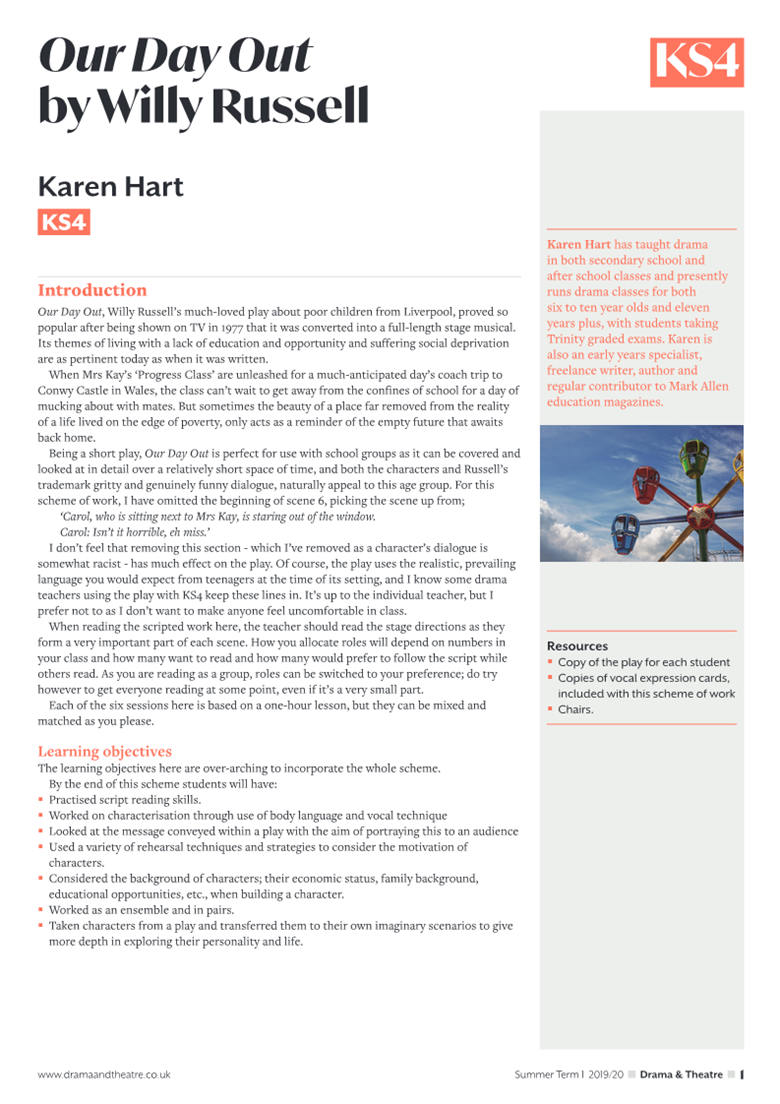Our Day Out by Willy Russell
Karen Hart
Sunday, March 1, 2020
Our Day Out, Willy Russell’s much-loved play about poor children from Liverpool, proved so popular after being shown on TV in 1977 that it was converted into a full-length stage musical. Its themes of living with a lack of education and opportunity and suffering social deprivation are as pertinent today as when it was written. When Mrs Kay’s ‘Progress Class’ are unleashed for a much-anticipated day’s coach trip to Conwy Castle in Wales, the class can’t wait to get away from the confines of school for a day of mucking about with mates. But sometimes the beauty of a place far removed from the reality of a life lived on the edge of poverty, only acts as a reminder of the empty future that awaits back home. Being a short play, Our Day Out is perfect for use with school groups as it can be covered and looked at in detail over a relatively short space of time, and both the characters and Russell’s trademark gritty and genuinely funny dialogue, naturally appeal to this age group. For this scheme of work, I have omitted the beginning of scene 6, picking the scene up from; ‘Carol, who is sitting next to Mrs Kay, is staring out of the window. Carol: Isn’t it horrible, eh miss.’ I don’t feel that removing this section - which I’ve removed as a character’s dialogue is somewhat racist - has much effect on the play. Of course, the play uses the realistic, prevailing language you would expect from teenagers at the time of its setting, and I know some drama teachers using the play with KS4 keep these lines in. It’s up to the individual teacher, but I prefer not to as I don’t want to make anyone feel uncomfortable in class. When reading the scripted work here, the teacher should read the stage directions as they form a very important part of each scene. How you allocate roles will depend on numbers in your class and how many want to read and how many would prefer to follow the script while others read. As you are reading as a group, roles can be switched to your preference; do try however to get everyone reading at some point, even if it’s a very small part. Each of the six sessions here is based on a one-hour lesson, but they can be mixed and matched as you please.


